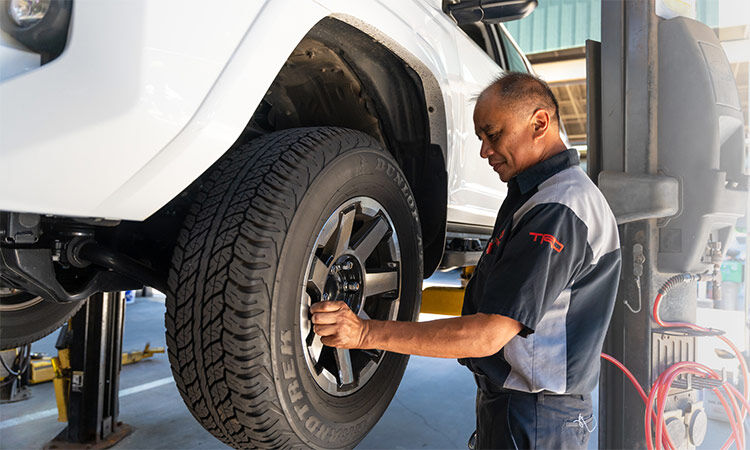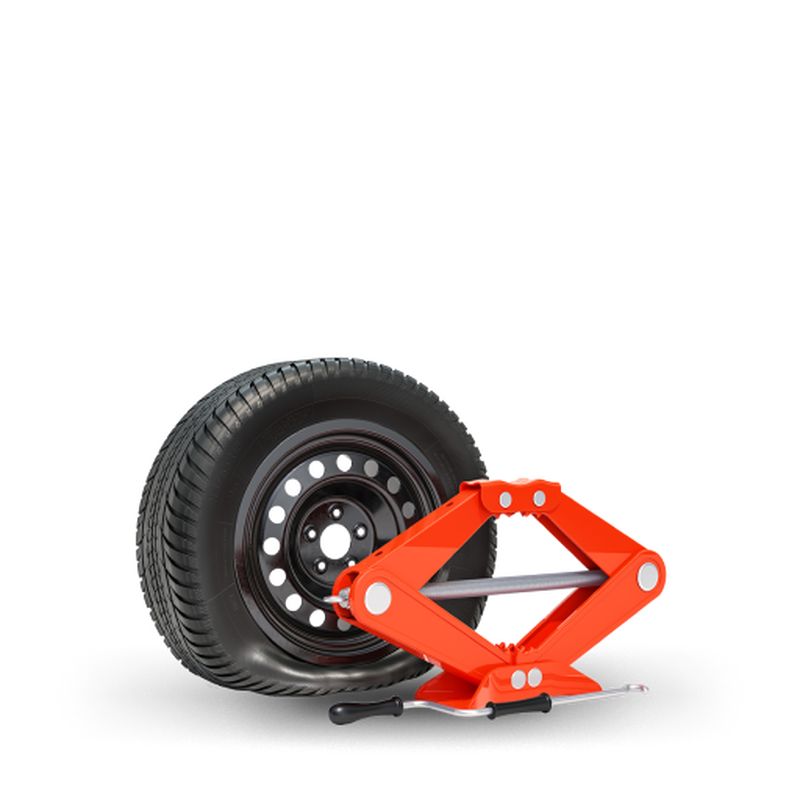Tire Solution: The Impact of Climate Condition
When it pertains to ensuring optimal efficiency and safety and security on the road, comprehending the influence of weather on tire service is critical. From scorching warm to icy roads, each weather element can considerably affect tire capability and total driving experience. By diving into the results of differing climate condition on tires, drivers can acquire valuable insights that may improve their automobile's performance and long life. In this conversation, we will discover the elaborate partnership in between weather problems and tire service, dropping light on the value of weather-specific tire upkeep techniques and factors to consider.
Heat and Tire Efficiency
When revealed to heats, tires experience adjustments in performance that can dramatically impact automobile safety and security and handling. The warmth produced from extended driving or heat problems causes the tire rubber to soften, resulting in reduced step life and boosted wear. As the rubber ends up being softer, the tire's hold when driving reduces, influencing braking distances and general grip. In extreme instances, extreme warmth can also cause tire blowouts, presenting an extreme safety risk to the vehicle and its occupants.

Winter Effects
Cold climate conditions can have a substantial effect on tire efficiency and safety. In chilly weather, tires may likewise shed air pressure more rapidly, which can impact handling and gas efficiency.
To alleviate the effects of winter on tires, it is vital to frequently check tire pressure and inflate them to the supplier's recommended levels. Making use of winter or all-season tires created for cool weather problems can additionally improve grip and grip on icy or snowy roads. Proper tire maintenance, consisting of routine inspections for wear and damages, ends up being a lot more vital throughout colder months to guarantee ideal performance and safety.
Rainy Issues Impact
Tires with worn-out treads are extra susceptible to hydroplaning, where a layer of water builds up in between the tire and the road surface, leading to loss of grip. To combat this, drivers should routinely check their tires for adequate walk deepness and take into consideration spending in tires particularly created for wet problems.
Furthermore, stormy weather can additionally reduce visibility, making it challenging for vehicle drivers to see the roadway in advance plainly (GMC Tire Service). In such problems, it is vital to adjust driving rates appropriately and keep a safe following range to enable abrupt stops. Properly filled with air tires can additionally assist in maintaining control on damp roadways by giving far better handling and grasp
Snow and Tire Safety And Security
When driving in snowy conditions, having the right tires can make a substantial distinction in security and efficiency. Winter tires are designed with special rubber compounds and walk patterns to offer much better grip on snow and ice contrasted to all-season tires.

It is vital to adhere to manufacturer more information directions when setting up and utilizing tire chains to avoid damage to the tires and automobile. By selecting the best tires, preserving proper rising cost of living, and thinking about additional grip help like tire chains, chauffeurs can enhance their security when browsing snow-covered roadways.
Weather-Related Tire Upkeep
When confronted with numerous climate conditions, appropriate tire upkeep ends up being an important element of car security and efficiency. Weather-related tire maintenance includes a series of practices aimed at making certain optimal tire feature and long life in different weather condition circumstances. One crucial aspect of weather-related tire maintenance is tire pressure law. Changing temperatures can cause tire stress to differ, affecting grip and gas performance. Consistently changing and checking tire this pressure according to maker referrals is essential for risk-free driving in transforming weather. In addition, tire tread depth plays a substantial duty in taking care of various weather elements. Tires with adequate tread depth give better grip on damp or icy roads, lowering the threat of skidding or hydroplaning. Evaluating tire step routinely and replacing tires when step wear gets to a particular deepness is crucial for preserving grip and security in damaging climate. By prioritizing weather-related tire upkeep, vehicle drivers can enhance security, boost automobile performance, and prolong the life expectancy of their tires.
Final Thought
In final thought, weather problems have a substantial effect on tire efficiency and safety. From warm impacting tire stress and put on to cool weather minimizing grip, it is important to take into consideration the weather when preserving and using tires. Stormy conditions can lower grip and cause hydroplaning, while snow can enhance the danger of crashes if tires are not correctly equipped. Weather-related tire maintenance is critical in making sure optimum performance and safety and security when traveling.
In this conversation, we will discover the complex partnership between weather condition problems and tire solution, losing light on the importance of weather-specific tire maintenance methods and factors to consider.
